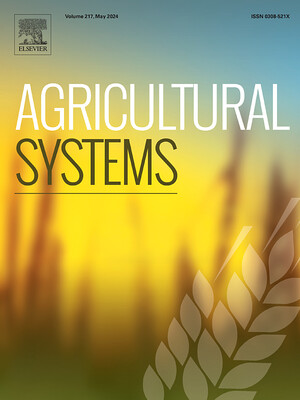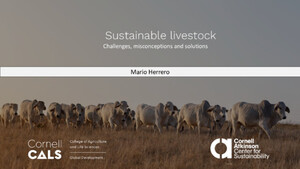
Delivering context specific, climate informed agro-advisories at scale: A case study of iSAT, an ICT linked platform piloted with rainfed groundnut farmers in a semi-arid environment
Abstract
The influence of climate and weather-based advisories in planning and managing agricultural systems under highly variable conditions was evaluated to understand the potential benefits and challenges associated with the use of probabilistic climate and weather information. A pilot study, conducted with 720 farmers in Anantapur district of Andhra Pradesh, India over 3 cropping seasons in the period 2017–2020, used a semi-automated decision support tool, the "intelligent agricultural Systems Advisory Tool – iSAT" to generate and disseminate pre- and in-season advisories by integrating insights from historical trends in climate, current weather and climate and weather forecasts. The pre-season advisory was based on the seasonal climate forecast and aimed at improving the preparedness of farmers for the forthcoming season. The in-season advisories were aimed at providing advice on the various farm operations where weather may play a role in management, i.e., land preparation, timing of planting and harvesting, crop management etc. After piloting the advisory system over the 3 cropping systems, a survey was conducted to evaluate how and what operations were influenced by the advisories and how well iSAT performed in developing and disseminating context-specific advisories through the season. The results have indicated that the advisories have influenced both strategic and tactical management decisions made by farmers. Strategic decisions on crop diversification are evident from land allocation in the treatment compared to the control villages. The influence of tactical farm decisions varied between operations, villages and years. Overall, 80% of the farmers used the information for making decisions on harvesting, 79% for sowing while 65% of farmers used it for land preparation. Advisory information has impacted crop productivity positively, with increases in the climate-informed villages of between 1 and 56% over the uninformed. The results further indicate that the farmers considered advisories more useful during the normal and below normal seasons as compared to above normal seasons.
Citation
Ramaraj, A.P. et al. 2023. Delivering context specific, climate informed agro-advisories at scale: A case study of iSAT, an ICT linked platform piloted with rainfed groundnut farmers in a semi-arid environment. Climate Services 31: 100403










